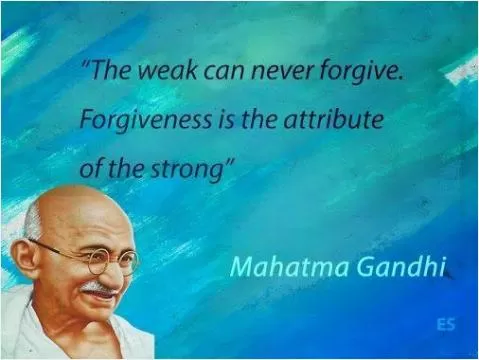God sometimes does try to the uttermost those whom he wishes to bless

God sometimes does try to the uttermost those whom he wishes to bless
Mahatma Gandhi, also known as the Father of the Nation in India, was a prominent leader in the Indian independence movement against British colonial rule. He was a firm believer in nonviolent resistance and civil disobedience as a means to achieve social and political change. Gandhi's life and teachings are a testament to the quote, "God sometimes does try to the uttermost those whom he wishes to bless."Gandhi faced numerous challenges and hardships throughout his life, but he remained steadfast in his beliefs and principles. He was imprisoned multiple times for his activism and spent a total of seven years behind bars. Despite facing physical and emotional hardships, Gandhi never wavered in his commitment to nonviolence and truth.
One of the most famous examples of Gandhi's unwavering faith and resilience is the Salt March of 1930. In response to the British salt tax, Gandhi led a 240-mile march to the Arabian Sea to produce salt from the seawater in defiance of British law. The march was met with violence and repression from British authorities, but Gandhi and his followers remained peaceful and resolute in their protest. The Salt March became a turning point in the Indian independence movement and inspired millions of Indians to join the fight for freedom.
Gandhi's commitment to nonviolence and his willingness to endure suffering for the greater good are a testament to the quote, "God sometimes does try to the uttermost those whom he wishes to bless." Despite facing immense challenges and obstacles, Gandhi's perseverance and faith ultimately led to the successful independence of India in 1947.












 Friendship Quotes
Friendship Quotes Love Quotes
Love Quotes Life Quotes
Life Quotes Funny Quotes
Funny Quotes Motivational Quotes
Motivational Quotes Inspirational Quotes
Inspirational Quotes